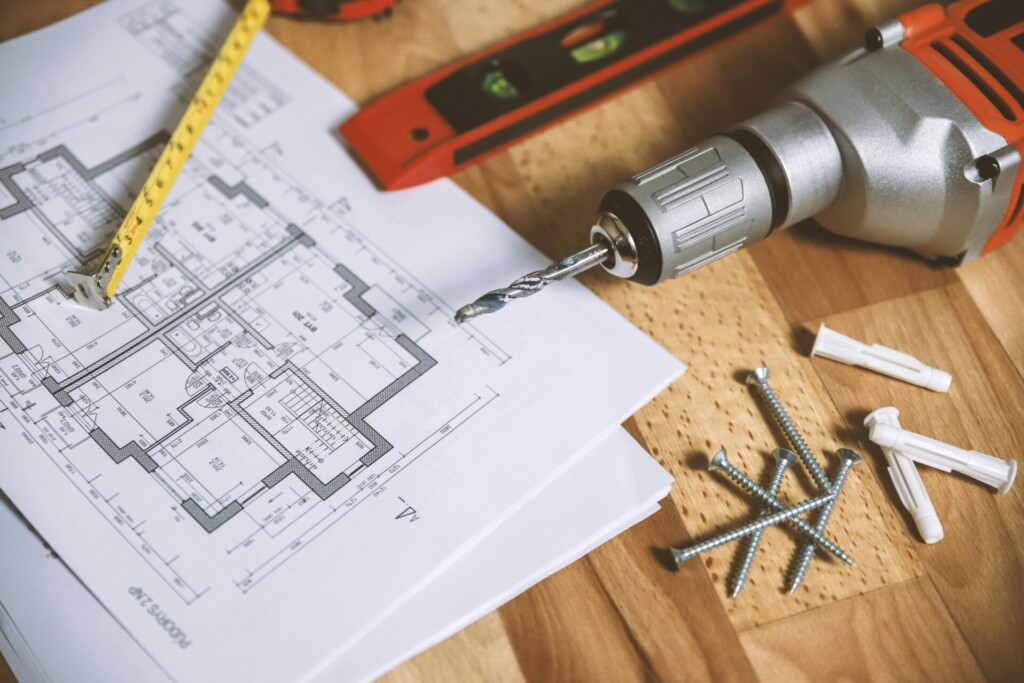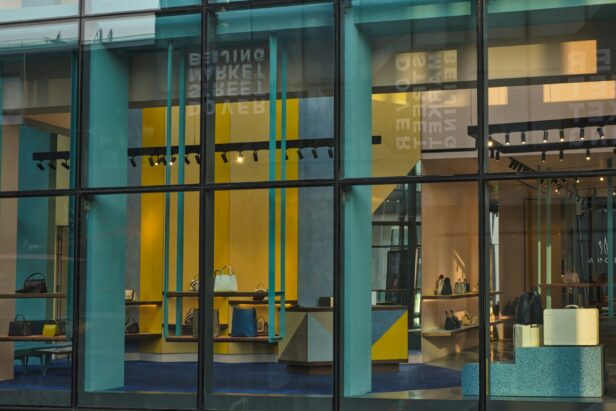Dallas restaurant construction typically unfolds through a predictable yet complex arc. Projects begin with site selection and conceptual design, progress through permitting and compliance phases, move into active construction and build-out work, and culminate with interior finishes and kitchen equipment installation that prepare spaces for opening day.
We coordinate ground-up construction for standalone restaurants, tenant finish-outs that transform raw commercial space, strategic remodels that refresh existing operations, and QSR rebrands that align locations with updated corporate standards. Our approach centers on transparent estimating, value engineering through established subcontractor relationships, and field-office technology that maintains project visibility from pre-construction through final inspection.
Which Services Should A Dallas Restaurant Project Include From Pre-Con To Opening?

We structure our restaurant construction services to cover the complete project lifecycle. Each service integrates with the next to maintain schedule continuity and quality standards throughout the build process.
Design And Planning Services
Our design and planning process translates restaurant concepts into buildable construction documents. We coordinate with architects and kitchen consultants to ensure layouts support both operational workflow and brand identity. The planning phase establishes equipment specifications, seating arrangements, and back-of-house efficiency requirements that guide all subsequent construction phases.
This service includes space programming that balances dining capacity with kitchen productivity. We review brand standards during design development to confirm finishes, fixtures, and architectural details align with corporate requirements or independent restaurant concepts.
Permitting And Compliance Support
We navigate Dallas building codes and local ordinances to secure construction permits efficiently. Our familiarity with city requirements helps streamline the approval process and identify potential compliance issues before they impact project schedules. This includes coordination with health departments, fire marshals, and zoning officials who oversee restaurant-specific regulations.
Compliance support extends to accessibility requirements and operational permits needed for opening. We track permit status throughout construction and coordinate inspections to maintain forward momentum on critical path activities.
Construction And Build-Out Execution
Our build-out services cover standalone restaurant construction, tenant improvements, and ground-up development projects. Site preparation includes utility connections, structural modifications, and infrastructure work that supports restaurant operations. We coordinate mechanical, electrical, and plumbing installations with finish work to minimize conflicts and rework.
Construction execution focuses on maintaining quality standards while meeting aggressive opening timelines. We sequence work to allow early equipment installation and staff training activities that prepare restaurants for successful launches.
Interior Design And Finishes
We install interior finishes that reinforce brand identity and create compelling customer experiences. This includes flooring systems, wall finishes, lighting design, and decorative elements that support the restaurant’s market positioning. Branding elements such as logos, color schemes, and custom millwork receive careful attention during the finish phase.
Front-of-house finishes balance aesthetic appeal with durability requirements for high-traffic restaurant environments. We coordinate finish selections with operational needs such as acoustic control, maintenance accessibility, and safety compliance.
Kitchen And Equipment Installation
Kitchen layout optimization drives equipment placement decisions that support efficient food preparation and service workflows. We coordinate equipment procurement, utility connections, and installation sequencing to minimize disruption to other construction activities. Equipment installation includes walk-in coolers, cooking lines, ventilation systems, and point-of-sale infrastructure.
Our installation process ensures all equipment meets manufacturer specifications and local code requirements. We conduct system commissioning and staff training coordination to prepare kitchens for operational readiness at opening.
Site Selection And Analysis
When projects require site evaluation, we provide analysis of location feasibility, traffic patterns, and development potential. Site selection considers visibility, accessibility, parking availability, and proximity to target demographics that influence restaurant success. We evaluate utility capacity, soil conditions, and zoning restrictions that impact construction costs and timelines.
This analysis helps restaurant owners make informed decisions about location investments before committing to lease agreements or property purchases.
Land Clearing And Civil Work
Ground-up restaurant projects require site development services including land clearing, grading, and utility extensions. We coordinate civil engineering work such as storm drainage, parking lot construction, and landscaping that supports restaurant operations. Site work includes coordination with traffic engineers for drive-through access and municipal utilities for service connections.
Civil work establishes the foundation for successful restaurant construction by addressing site constraints and optimization opportunities early in the development process.
Updates, Remodels, And Corporate Rebrands
Restaurant remodeling projects require careful coordination to minimize operational disruption while updating facilities to current brand standards. We plan renovation phases that allow restaurants to maintain revenue during construction when possible. QSR remodels typically focus on efficiency improvements, technology upgrades, and brand refresh elements that enhance customer experience.
Corporate rebrand programs involve systematic updates across multiple locations using standardized specifications and coordinated scheduling. We manage these programs to ensure consistent implementation while accommodating site-specific requirements and local market conditions.
How Are Budget, Schedule, And Risk Managed On Dallas Restaurant Builds?
Construction feasibility depends on precise cost control, schedule coordination, and proactive risk management throughout the project lifecycle. We integrate these disciplines from project conception through grand opening to maintain both financial targets and operational timelines.
Estimating And Value Engineering
We employ an in-house estimator who provides transparent, detailed cost projections aligned with current market conditions. This approach eliminates third-party markups and ensures accuracy in budgeting decisions. Value engineering principles guide material selection and construction methods, identifying cost-effective alternatives without compromising quality or functionality.
Long-term relationships with specialized subcontractors give us access to hard-to-source restaurant materials like commercial-grade kitchen components and custom millwork. These partnerships streamline procurement and reduce lead times for critical path items. Our value engineering process evaluates lifecycle costs, not just initial expenditures, ensuring decisions support both immediate budgets and long-term operational efficiency.
Comprehensive Project Controls
Feasibility studies establish baseline parameters for scope, budget, and timeline before construction begins. Schedule development incorporates realistic durations for permit processing, material delivery, and inspection cycles specific to Dallas requirements. Quality assurance protocols monitor work standards at each construction phase to prevent costly rework.
Safety planning addresses restaurant-specific hazards including kitchen equipment installation and electrical work in food service environments. Project accounting tracks costs against budget categories in real-time, enabling immediate course corrections when variances occur. These integrated controls create a framework for consistent project execution regardless of project complexity.
Technology Integration
Daily reports capture progress metrics, material deliveries, and issue resolution in standardized formats accessible to all stakeholders. Live camera feeds provide continuous jobsite visibility, allowing office-based decision makers to assess conditions without site visits. This technology integration connects field operations with project management functions for faster response times.
Digital documentation systems maintain permit records, inspection reports, and change order approvals in centralized databases. Real-time communication tools enable immediate coordination between trades, reducing delays from miscommunication or scheduling conflicts. Technology serves as the backbone for transparent project execution and stakeholder communication.
Proactive Problem Resolution
Material shortages receive immediate attention through established supplier networks and alternative sourcing strategies. Labor constraints are addressed through cross-trained crews and relationships with reliable specialty contractors. City code updates are monitored continuously to prevent compliance issues during construction.
Our problem-solving approach emphasizes early identification and systematic resolution rather than reactive measures. Regular coordination meetings address potential conflicts before they impact schedules or budgets. This methodology transforms challenges into manageable project variables rather than crisis situations.
Communication And Coordination Culture
Clear communication protocols establish responsibility for decisions, approvals, and progress reporting across all project participants. Strong relationships with local inspectors, utility providers, and municipal offices facilitate smoother project processing. We prioritize removing jobsite chaos through organized logistics and defined work sequences.
Safe execution depends on coordinated trades working within established safety protocols and quality standards. Regular project meetings maintain alignment between design intent, construction reality, and operational requirements. This culture of coordination ensures restaurant projects meet both construction standards and operational readiness for opening day.
What Dallas-specific Code, Accessibility, And Operational Details Matter Most?

Dallas building codes and local ordinances set the framework for every restaurant project. We start permitting discussions early in design to prevent costly delays later. The city’s Development Services Department requires specific documentation for commercial food service operations, and understanding these requirements upfront saves weeks during the approval process.
Building Code Compliance And Permitting Paths
Dallas follows the International Building Code with local amendments that affect restaurant operations. Food service establishments face additional scrutiny for ventilation systems, grease management, and fire suppression. We coordinate with the city’s plan review team to address these requirements during the design phase.
Each delivery format follows a different permitting timeline. Ground-up builds require the most comprehensive review, including site development and full building systems. Tenant finish-outs focus on interior improvements and compliance with existing building infrastructure. Remodel projects must demonstrate how changes integrate with current systems while meeting updated code requirements.
ADA Compliance For Restaurant Environments
ADA compliance affects every aspect of restaurant design, from entry doors to restroom facilities. Clear width requirements of 32 inches minimum ensure wheelchair access through all public areas. Door hardware must operate without tight grasping or wrist twisting, making lever handles standard throughout front-of-house spaces.
Back-of-house areas require careful planning to accommodate employees with disabilities. While full accessibility isn’t mandated in all work areas, we design kitchens with adjustable workstations and accessible routes to break rooms and staff facilities. The Texas Accessibility Standards provide detailed guidance for commercial kitchen layouts and employee work areas.
Counter heights, reach ranges, and maneuvering clearances must comply with ADA standards. We verify these measurements during design and confirm compliance through final inspections. Parking requirements include accessible spaces with proper signage and access aisles connecting to building entrances.
Site Operations And Guest Experience
Drive-through design significantly impacts both permitting and guest flow. Lane width, stacking capacity, and circulation patterns require city approval and affect neighboring properties. We design drive-through layouts that minimize impact on parking while maximizing operational efficiency.
Outdoor lighting must meet Dallas ordinances for both functionality and neighborhood compatibility. Full cutoff fixtures reduce light pollution while providing adequate illumination for safety and security. Maximum lamp wattage restrictions apply to commercial installations, with 250-watt limits for most commercial lighting applications.
Parking flow affects both guest experience and city approval. We calculate required spaces based on Dallas parking ratios and design circulation patterns that support peak-hour operations. Site access, delivery zones, and emergency vehicle access all factor into the overall layout.
Systems Integration Between Front And Back Of House
Back-of-house mechanical systems must integrate seamlessly with front-of-house finishes and operations. Kitchen exhaust systems, refrigeration equipment, and utility connections require coordination with dining room HVAC and electrical systems. We balance operational efficiency with aesthetic considerations throughout the design process.
Structural modifications in existing buildings require engineering analysis to ensure safe integration of new equipment loads. We coordinate with structural engineers to verify that kitchen equipment, walk-in coolers, and other heavy installations meet building capacity requirements.
Conclusion and Next Steps

Restaurant construction in Dallas succeeds when owners follow a systematic approach. Define your scope and brand standards early, then conduct thorough site selection and analysis. Complete design and pre-construction planning before moving to permits, ensuring ADA compliance stays front and center. Align budget, schedule, value engineering options, and procurement planning to maintain project momentum.
Gathering multiple bids from licensed contractors protects your investment and timeline. Review portfolios carefully, looking for proven experience in ground-up builds, tenant finish-outs, and remodels that match your project type. Plan for staff training and soft openings well ahead of your target date. Keep communication cadence tight with daily reporting to catch issues before they become delays.
Ready to move forward with your Dallas restaurant project? Contact EB3 Construction to discuss how our estimating, feasibility studies, project controls, and field technology can support your on-time, compliant opening.

